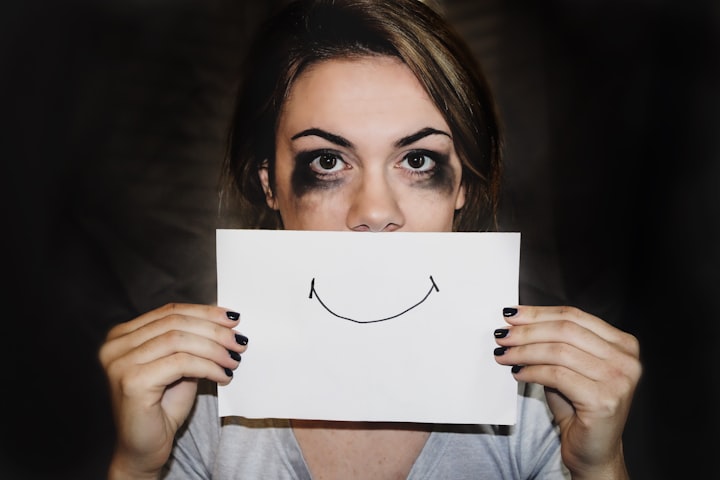This Is How Hormonal Birth Control Affects The Mental & Emotional Health Of A Person
Major depressive disorder

Introduction
The idea of abortion is still stigmatized in many parts of the world, and recent abortion bans in several states of the United States have sparked a global debate about women's rights to make decisions about their own bodies. In an effort to prevent such situations, many women opt for hormonal birth control. But how does hormonal birth control affect a person's mental and emotional health? In this article, we will explore the various aspects of hormonal birth control and its impact on mental well-being.
What is Hormonal Birth Control and How Does It Work?

Hormonal birth control methods utilize hormones to prevent pregnancy. These methods typically contain estrogen, progesterone, or a combination of both, which regulate the reproductive system and prevent pregnancy. They work by either inhibiting the release of eggs from the ovaries, thinning the uterine lining to prevent implantation, or thickening the cervical mucus to impede sperm movement. Common hormonal birth control options include pills, patches, rings, shots, intrauterine devices (IUDs), and implants. The choice of method depends on individual preferences and medical advice.
Effects of Hormonal Birth Control on Mental Health

Hormonal birth control can have several effects on a person's mental and emotional well-being. While it offers benefits like reduced premenstrual cramps and improved acne, it can also lead to mood swings and impact mental health negatively. Let's explore these effects in more detail.
Mood Swings and Mental Disorders

Mood swings are a common side effect of hormonal birth control. These fluctuations in mood can have a significant impact on a person's mental health, potentially leading to the development of mood disorders such as depression and anxiety. Various studies have shed light on this correlation.
A 2016 study conducted in Denmark titled 'Association of hormonal contraception with depression' revealed that women using hormonal birth control were 50 percent more likely to be diagnosed with depression six months later compared to those who did not use hormonal contraceptives. Additionally, women on hormonal contraceptives were 40 percent more likely to be prescribed antidepressants. This study highlights a potential link between hormonal birth control and depressive disorders.
Furthermore, research suggests that women are twice as likely to suffer from depression as men, and this disparity often begins during puberty. Hormonal birth control can contribute to fewer mood changes during premenstrual syndrome (PMS), which can include symptoms like irritability, anger, breast tenderness, bloating, and cramping.
Increased Appetite and Eating Disorders

Another effect of hormonal birth control is an increased appetite. A 2012 study titled 'Sex hormones, appetite, and eating behavior in women' indicated that hormonal changes caused by birth control can lead to a greater appetite. While estrogen inhibits food intake, progesterone and testosterone may stimulate appetite. This change in appetite can result in reduced impulse control and contribute to eating disorders such as bulimia or binge eating disorders.
Coping Strategies for Hormonal Birth Control Symptoms
Although hormonal birth control offers various benefits, the associated mood triggers and changes can cause significant mental distress, leading some individuals to discontinue contraception. However, there are coping strategies that can help manage these symptoms effectively.
Non-Hormonal Birth Control Methods

For individuals experiencing severe mood changes, non-hormonal birth control methods can be explored. These methods provide similar contraceptive effects without the potential mood-related side effects. Some non-hormonal options include:
1. Barrier Methods: Condoms, diaphragms, or cervical caps create a physical barrier that prevents sperm from reaching the egg. These methods also offer protection against sexually transmitted infections (STIs).
2. Intrauterine Devices (IUDs): Copper IUDs, which do not contain hormones, release copper ions that are toxic to sperm, preventing fertilization. They provide long-term contraception without hormonal influences.
3. Fertility Awareness-Based Methods: Tracking basal body temperature (BBT), monitoring cervical mucus consistency, or using calendar methods can help identify fertile periods and guide contraception choices.
Supportive Therapy

If mood changes persist or worsen, seeking professional help from a therapist or counselor is crucial. Cognitive-behavioral therapy (CBT) and other talk therapy approaches can equip individuals with valuable tools to manage mood symptoms effectively.
Lifestyle Adjustments

Maintaining a healthy lifestyle can have a positive impact on mood. Regular exercise, a balanced diet, sufficient sleep, and stress management techniques like mindfulness and meditation can help stabilize mood and alleviate symptoms.
Symptom Tracking

Keeping a journal or using mood-tracking apps can help monitor mood changes and identify patterns related to hormonal birth control. This information can be valuable when discussing symptoms with healthcare providers.
Seek Support

If the mood swings and mental health disorders associated with hormonal birth control become overwhelming, seeking support from professionals, such as therapists, is crucial. They can provide help and guidance for managing the challenges you are facing.
Conclusion
Hormonal birth control, while offering benefits in terms of pregnancy prevention and menstrual regulation, can have an impact on a person's mental and emotional health. Mood swings and changes in appetite are common side effects, and some individuals may develop mood disorders like depression and anxiety. However, there are coping strategies available, including non-hormonal birth control methods, supportive therapy, lifestyle adjustments, symptom tracking, and seeking professional support. Ultimately, the decision to use hormonal birth control should be made after careful consideration and consultation with healthcare experts.
About the Creator
satish Kumar
Content Strategist, YouTuber, Website Developer & SEO Analyst: Dedicated to Constant Skill Growth






Comments
There are no comments for this story
Be the first to respond and start the conversation.